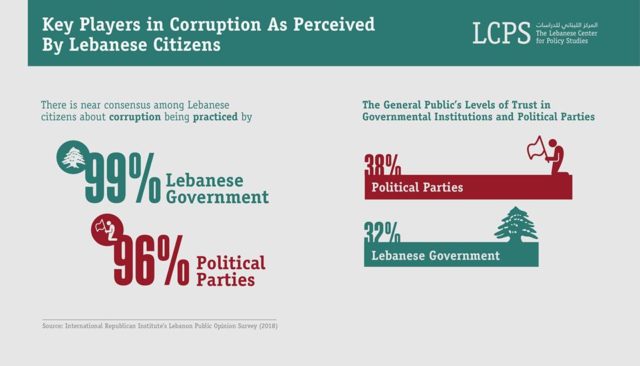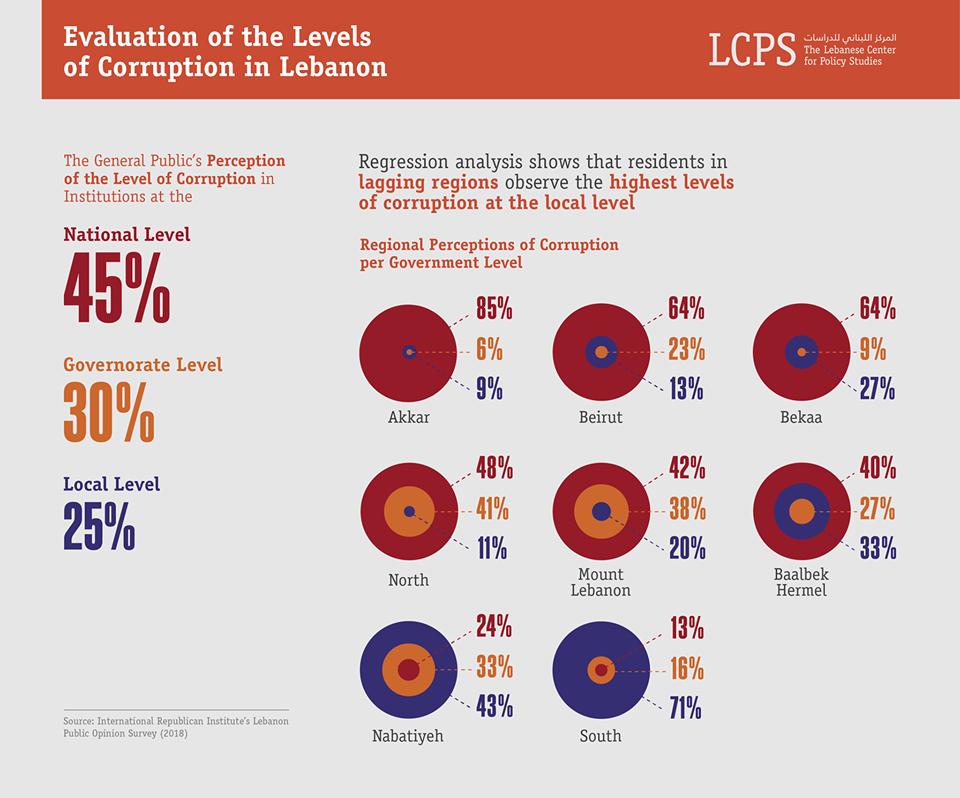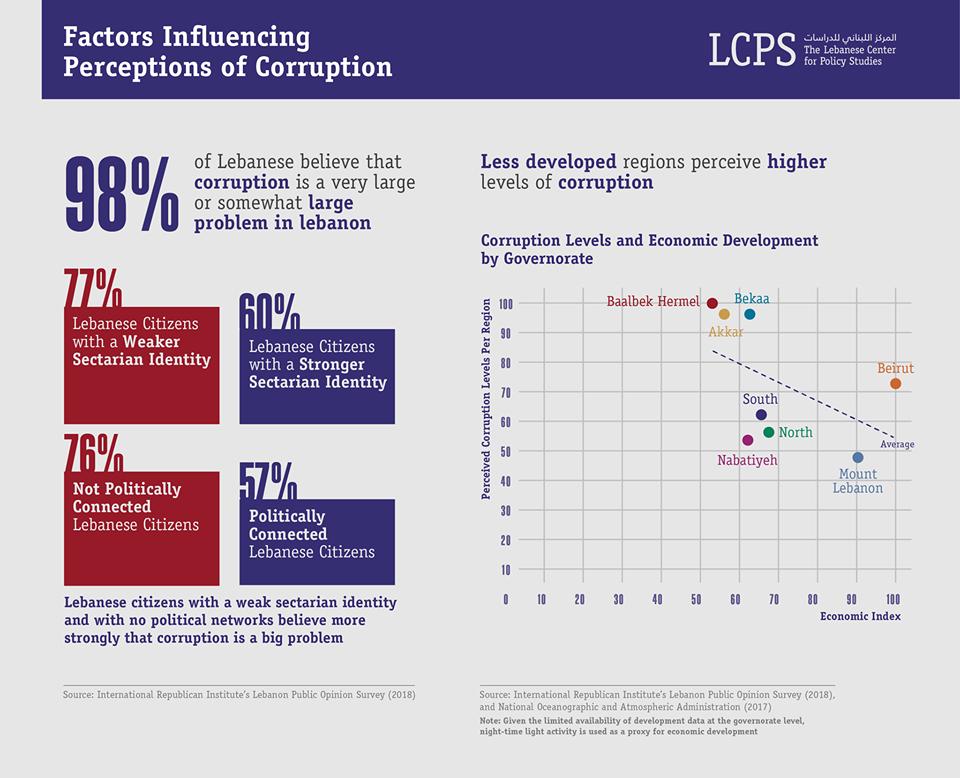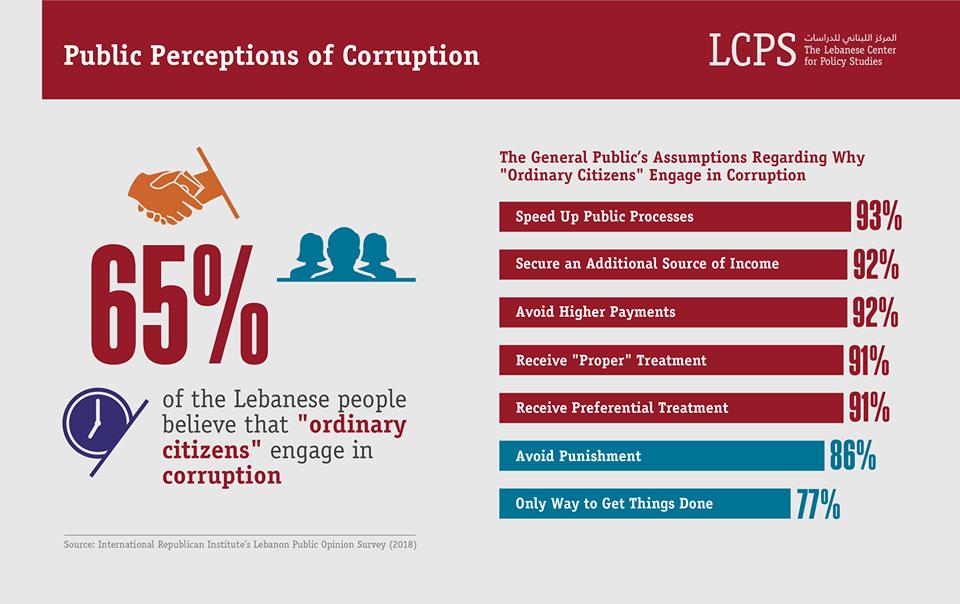The Lebanese Centre for Policy Studies (LCPS) recently published a series of infographics capturing citizens’ perceptions of their country. The results are quite shocking:
INFACT,
- There is near consensus among Lebanese that corruption the government and political parties practice corruption (98% and 96% respectively).
- The general public has 38% trust in political parties and 32% trust in government.
- The general public perceives 45% level of corruption on the national level; 30% corruption on the governorate level; and 25% corruption on the local level.
- Residents in less developed regions (e.g. Akkar, Baalbeck-Hermel) perceive regional corruption to be higher than in more developed regions.
- 65% of the Lebanese people believe that ordinary citizens engage in corruption for these top 3 reasons:
- Speed up public processes (93%)
- Secure an additional source of income (92%)
- Avoid higher payments (92%)
Numbers are incredibly important, particularly in a data-scarce country like Lebanon. More importantly, what are these numbers telling us?
- A weak sense of citizenship and belonging to the nation.
- Weak relationship between citizen and local government.
- Unequal distribution of resources and imbalanced development across the country.
- High level of bureaucracy.
- A weak economic climate.
Food For Thought: What policies should be adopted in order to empower citizens, strengthen relationships between citizen and local government, and encourage equal development in the country?



